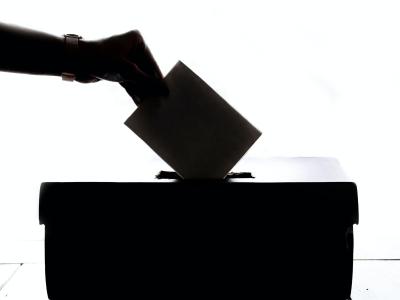By Curtis Brown, Principal, Probe Research
“So there’s an election happening. Wow, you guys must be very busy!”
If we had a dollar for every time someone said that to us, we could retire.
But it’s actually true – but not for the reasons you’d think.
Truthfully, public opinion researchers are total election junkies. We carefully follow the campaigns and want to know what voters are thinking and feeling right until the moment they cast a ballot. We explore this on behalf of our clients, including media outlets, and to satisfy our own curiosity.
Elections are a chance for pollsters to showcase their work publicly, which we’re proud to do.
Yet every time we comment on a survey or a specific aspect of the campaign, inevitably we are asked to predict the future using survey data from the recent past and synthesize this historic voting patterns and other demographic and behavioural data to provide some degree of insight. We’re learning the hard way to avoid predicting a winner - as well as trying not to be so blatantly self-promotional and ridiculous about our punditry and our perceived soothsaying abilities.
So, let’s take a moment to dispel some of the myths linked to being a pollster and on-call political pundit during election season.
- "You’re in the tank for [insert party/party leader] here.” Setting aside the fact that perceived partisanship is 100% in the eye of the beholder (go read Twitter posts to see what we mean), Probe Research and its staff are completely non-partisan. We will never – ever – do work for a political party. We have zero commercial or personal interest in a particular election outcome. It would be bad business (not to mention social science malpractice) to deliberately skew the results in favour of one party. Arguing this point with a hyper-partisan is like trying to convince a flat earther that the world is round – or that gravity is, you know, a real thing – but rest assured that no one has a greater interest in getting it right and being completely accurate than us.
- “You are going to talk about my results to the media, aren’t you?” Probe is proud of its partnerships with local media outlets, including the Winnipeg Free Press and CTV Winnipeg. We provide journalists with data on party popularity, what the most important issues are to voters and other hot topics that are of interest to voters. From time to time, other organizations will also ask us to survey Manitobans about specific issues, but our explicit policy is not to comment on what a client’s results mean. We will only answer any technical questions about how the survey was done. As part of this, we also insist on “holding the pen” when it comes to how the questions are written and presented because we want to make sure our work is scrupulously fair and neutral. We won’t ask questions in order to juke the results to please a client. And when organizations conduct surveys they do not want to release publicly, they remain totally confidential. We may know a lot about a specific subject, but these private insights will never cross our lips when we comment on the dynamics of the race or what Manitobans think about certain issues.
- “You’re too busy being on TV to get my report done.” Again, totally not true. Media appearances are over and above the time we spend completing important client work. Our commitments to our clients come first and deadlines do not slip just because we are also spending some extra time commenting on the race.
- “Your poll can’t be right because you didn’t call me.” It is impossible and impractical – not to mention unnecessary – to call every single person to get their opinion. What matters is making sure we speak to a representative sample of citizens. This means being rigorous about including the exact proportion of men versus women, or people living in Winnipeg versus other parts of the province and calibrating the sample to the Census. Also, contrary to what some people think, we do call cell phone numbers to make sure the growing number of people who don’t have landlines are included in our sample.
- “So who IS going to win the election?” Once we patent the Probe Research Prognostication 3000 Crystal Ball™, we’ll definitely let you know. Until then, we’ll give you our best sense of what is likely to happen based on those three items I mentioned earlier: survey data, historic voting patterns and demographic information. But elections are uncertain things – and even though it’s a total cliché at this point, campaigns do matter! (We’ve literally said that 50 times in the last three weeks.)
So, prove us right and don’t forget to vote on September 10. And please watch for the next Probe Research poll!



